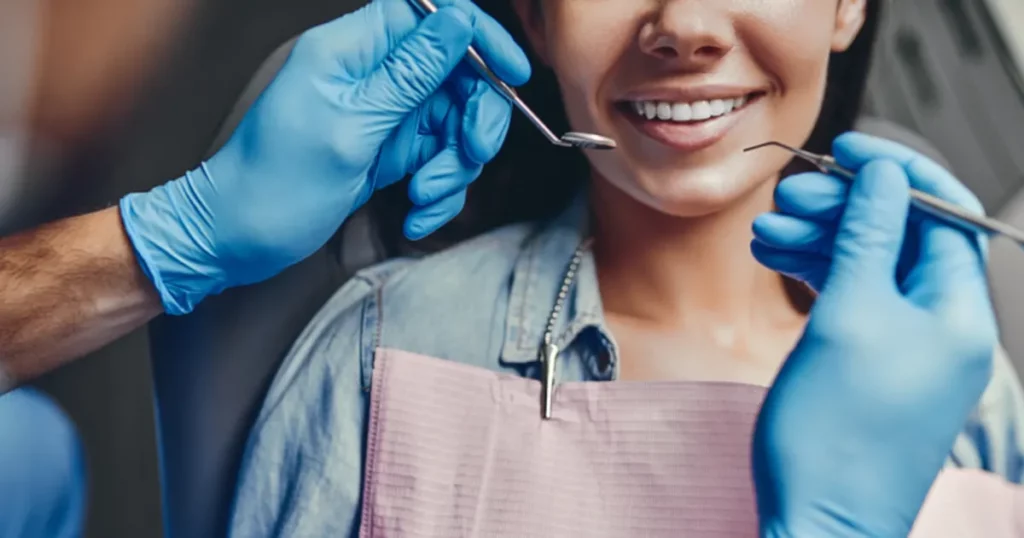Dental workers face a number of work-related injuries on the job, ranging from infectious hazards to physical and psychological ones. These workers may be able to file workers’ comp claims if they sustain any of the following injuries.
Infectious Diseases
Like other healthcare workers, dental workers are often exposed to a variety of pathogens, including blood-borne infections such as hepatitis B, hepatitis C, and Human Immunodeficiency Virus (HIV). These can spread if workers cut themselves on dental instruments due to patient movement or small operating fields. In addition to these potential infections, bacterial infections are another risk when performing certain procedures. Tuberculosis and syphilis are two infections that are particularly concerning for dental practitioners.
Latex Sensitivity
In an effort to prevent potential infections, many dentists use latex gloves as a means of protection. However, lengthy exposure to latex caused additional problems in dental workers. Many workers experience latex sensitivity because of the allergenic proteins found in natural rubber. In 1994, the American Dental Association (ADA) started to investigate the commonality of Type I latex hypersensitivity in dental workers, testing more than 2,000 dentists, assistants, and hygienists. The results of this study found that 6.2% of dental workers tested were positive for this hypersensitivity.
The Centers for Disease Control and Prevention (CDC) have since released certain guidelines for dental workers regarding latex. The guidelines state that dental healthcare providers should be aware of the various signs and symptoms of latex sensitivity. Physicians should also evaluate any dental healthcare providers’ symptoms, as further exposure could cause a serious or even fatal allergic reaction. The guidelines further state that diagnoses of hypersensitivity should be based on medical history, physical examinations, and diagnostic tests. Procedures for treating sensitivity could include reducing exposure to latex products, training and educating dental workers, using appropriate work practices, and monitoring for any symptoms.
Musculoskeletal Injuries
When dental workers are hurt at work, one common cause of injuries is a strained posture. Dentists frequently have to stand or sit close to patients who are in a lying or sitting position, which can cause strain to the musculoskeletal system.
Potential musculoskeletal injuries include hand and wrist injuries, neck and shoulder injuries, and back injuries. Some injuries may result from the vibrations of dental instruments when performing procedures on patients, resulting in changes in the vascular, osteoarticular, and neural systems, causing what is known as vibration syndrome.
Eye Injuries
Many procedures call for personal protective equipment for both the patient and dentist, including eye protection. This is because of the potential exposure to chemicals and aerosols along with the passing of dental instruments near the patient’s face. Curing lights can also cause eye damage when placing restorative resins as a result of photoallergic and phototoxic reactions due to absorbed radiation.
Mercury and other heavy metals can also cause eye injuries to dental workers. Additionally, splatter and debris from dental procedures may get into a dentist’s eyes. To prevent these and other potential injuries, dental workers should wear eye protection.
Hearing Loss
Another type of injury that dental workers may sustain is hearing loss due to loud noises in the workplace. Workers may not realize that they require a hearing evaluation until they experience tinnitus. Potential sources of destructive and distracting noise in dental practices could include low-speed handpieces, high-speed turbine handpieces, ultrasonic cleaners and instruments, high-velocity suction, mixing devices such as vibrators, and model trimmers. In some practices, dentists may also play music or use air conditioners that contribute to hearing loss.
Psychological Distress
In addition to physical workplace injuries, dental workers face psychological disorders that could have an adverse effect on their health. Potential causes of these disorders include work-related tension, stress, depression, depersonalization, and emotional exhaustion.
Generally, dental practice can be stressful as dentists need to overcome a variety of both personal and professional stressors. Serious stressors include inadvertently causing pain to patients, running behind schedule, late or anxious patients, and heavy workloads.
All of these potential injuries make for a hazardous workplace and could warrant a claim if the dental worker can prove the cause of these injuries. Dentists and other dental workers can take steps to create a safer workplace, including using the proper safety gear, maintaining safe noise levels, and monitoring for symptoms of any allergic reactions, illnesses, or work-related stress.
